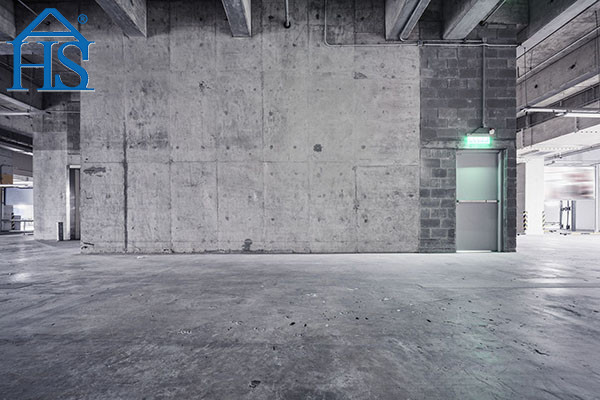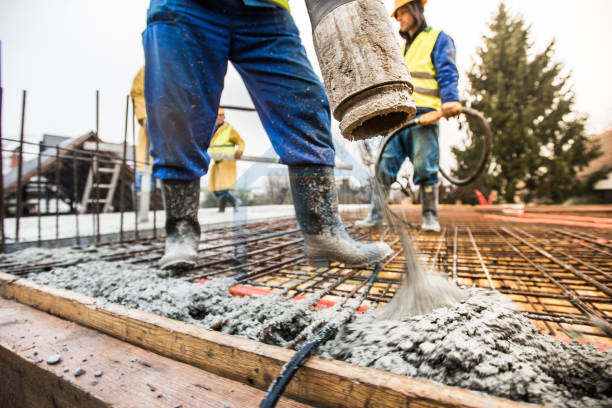Betonzementzusätze
Betonzementzusätze sind Stoffe, die Beton zugesetzt werden, um seine Eigenschaften zu verändern und seine Leistung zu verbessern. Diese Zusatzstoffe werden typischerweise verwendet, um die Verarbeitbarkeit von Beton zu verbessern, seine Stärke erhöhen, Haltbarkeit, und die Abbindezeit verkürzen. Zu den am häufigsten verwendeten Betonzementzusätzen gehören::
Wasserreduzierer:
Wasserreduzierer werden verwendet, um die in einer Betonmischung benötigte Wassermenge zu verringern und gleichzeitig deren Verarbeitbarkeit aufrechtzuerhalten. Dies führt zu einem Beton mit höherer Festigkeit, verbesserter Haltbarkeit und geringerem Schwinden.
Luftporenbildner:
Luftporenbildner werden verwendet, um mikroskopisch kleine Luftblasen im Beton zu erzeugen, die als innere Verstärkung dienen und dazu beitragen, die Widerstandsfähigkeit gegenüber Frost-Tau-Wechseln zu erhöhen.
Beschleuniger:
Beschleuniger werden verwendet, um die Abbindezeit von Beton zu beschleunigen, Dies ermöglicht eine schnellere Fertigstellung des Betons und verringert das Risiko von Rissen.
Verzögerer:
Verzögerer werden verwendet, um die Abbindezeit von Beton zu verlangsamen, wodurch es einfacher zu platzieren und zu beenden ist.
Weichmacher:
Weichmacher werden verwendet, um die Verarbeitbarkeit von Beton zu verbessern, indem sie ihn flüssiger machen und seine Entmischung verringern.
Superplastifizierer:
Superverflüssiger sind Weichmacher, die die Verarbeitbarkeit von Beton erheblich verbessern und die Verwendung niedrigerer Wasser-Zement-Verhältnisse ermöglichen, was zu festerem Beton führt.
Puzzolanische Materialien:
Puzzolanische Materialien, wie zum Beispiel Quarzstaub und Flugasche, werden Beton zugesetzt, um seine Festigkeit und Haltbarkeit zu verbessern.
Der Einsatz von Betonzementzusätzen kann die Eigenschaften und Leistung von Beton erheblich verbessern, Dadurch ist es vielseitiger und für eine Vielzahl von Bauanwendungen geeignet. Jedoch, Um optimale Ergebnisse zu erzielen, ist es wichtig, die richtigen Zusatzstoffe auszuwählen und diese in angemessenen Mengen zu verwenden.
Vorteile der Zugabe von Silica-Rauch
- Erhöhte Stärke
- Verbesserte Haltbarkeit
- Reduzierte Schrumpfung
- Erhöhte Bearbeitbarkeit
- Verbesserte Sulfatbeständigkeit
- Bessere Feuerbeständigkeit
Herausforderungen mit Silica-Rauch
Obwohl Silica-Rauch ist ein äußerst vorteilhafter Zusatzstoff für Beton, Seine Verwendung kann auch einige Herausforderungen mit sich bringen.
Kosten
Silikatrauch ist hochreaktiv, ultrafeines Pulvermaterial, das eine besondere Handhabung und Verarbeitung erfordert. Dadurch ist es teurer als andere Zementzusätze, und seine Kosten können sich auf die Gesamtkosten des Betons auswirken.
Handhabung und Lagerung
Quarzstaub ist ein sehr feines Pulver, das bei unsachgemäßer Handhabung Gesundheits- und Sicherheitsrisiken hervorrufen kann. Es ist außerdem hygroskopisch, Das bedeutet, dass es Feuchtigkeit aus der Luft aufnimmt, Daher ist es notwendig, es in luftdichten Behältern aufzubewahren, um ein Verklumpen zu verhindern.
Kompatibilität mit anderen Zusatzstoffen
Quarzstaub ist eine hochreaktive Substanz, die mit anderen Zusatzstoffen im Beton interagieren kann, was zu unerwarteten und unerwünschten Ergebnissen führt. Bei der Verwendung von Quarzstaub muss sorgfältig auf die Auswahl und Verwendung weiterer Zusatzstoffe geachtet werden.
Mischen
Quarzstaub ist ein sehr feines Pulver, das sich nur schwer gleichmäßig in Beton einmischen lässt. Dies kann zu einer ungleichmäßigen Verteilung und inkonsistenten Ergebnissen führen.
Hochdosiert
Quarzstaub ist ein hochreaktiver Stoff, der erhebliche Auswirkungen auf die Betoneigenschaften haben kann. Es muss darauf geachtet werden, es in angemessenen Mengen zu verwenden und die empfohlenen Dosierungen einzuhalten, um negative Auswirkungen zu vermeiden.
Sicherheits-Bedenken
Die Handhabung und Verwendung von Quarzstaub als Beton-Zement-Zusatzstoff kann einige Sicherheitsbedenken mit sich bringen, die berücksichtigt werden müssen.
Lungengängiges kristallines Siliciumdioxid (RCS)
Silica-Rauch ist ein feines Pulver, das alveolengängige kristalline Kieselsäure enthält (RCS), das als krebserregend für den Menschen bekannt ist. Eine langfristige Exposition gegenüber RCS kann zu Lungenschäden führen, einschließlich Silikose, Lungenkrebs, und chronisch obstruktive Lungenerkrankung (COPD).
Staubentwicklung
Quarzstaub ist ein sehr feines Pulver, das bei der Handhabung erhebliche Staubmengen erzeugen kann, Transport, und nutzen. Dies kann eine Gefahr für die Atemwege darstellen, rutschige Oberflächen verursachen und zur Korrosion von Maschinen und Geräten beitragen.
Feuchtigkeitsempfindlichkeit
Quarzstaub ist eine hygroskopische Substanz, die Feuchtigkeit aus der Luft aufnimmt. Bei unsachgemäßer Lagerung in luftdichten Behältern, es kann verklumpen und schwierig zu handhaben sein.
Chemische Reaktionen
Quarzstaub ist eine hochreaktive Substanz, die mit anderen Substanzen im Beton interagieren kann, was zu unerwarteten und unerwünschten Ergebnissen führt.
Vorsichtsmaßnahmen
Bei der Handhabung und Verwendung von Quarzstaub als Zusatzstoff für Beton und Zement muss sorgfältig auf die Sicherheit geachtet werden, um das Risiko von Atemwegs- und anderen Gesundheitsgefahren zu minimieren. Richtige persönliche Schutzausrüstung (PSA) sollte benutzt werden, und es sollten ordnungsgemäße Handhabungs- und Lagerungsverfahren befolgt werden, um das Risiko einer Exposition gegenüber RCS und anderen Gefahren zu minimieren.
Zusammenfassung
Betonzementzusätze wie Silikatstaub sind wesentliche Bestandteile für die Herstellung von Beton, langlebiger Beton. Dieses Material bietet hervorragende Haltbarkeit und Festigkeit, Damit ist es die erste Wahl für industrielle und kommerzielle Anwendungen. Mit erhöhter Verarbeitbarkeit und reduziertem Wasserbedarf, it can help to reduce costs for projects that require a high-strength concrete. By adding silica fume to your concrete mix you will be creating an end product that has superior performance characteristics compared to regular concrete mix.
Henan überlegene Schleifmittel, as a professional supplier of concrete additive – silica fume, has been supplying high quality silica fume to customers in more than 100 countries around the world for more than 20 Jahre, if you also need microsilica as concrete additive, welcome to contact us.
E-mail: sales@superior-abrasives.com
Whatsapp: +86-18638638803





